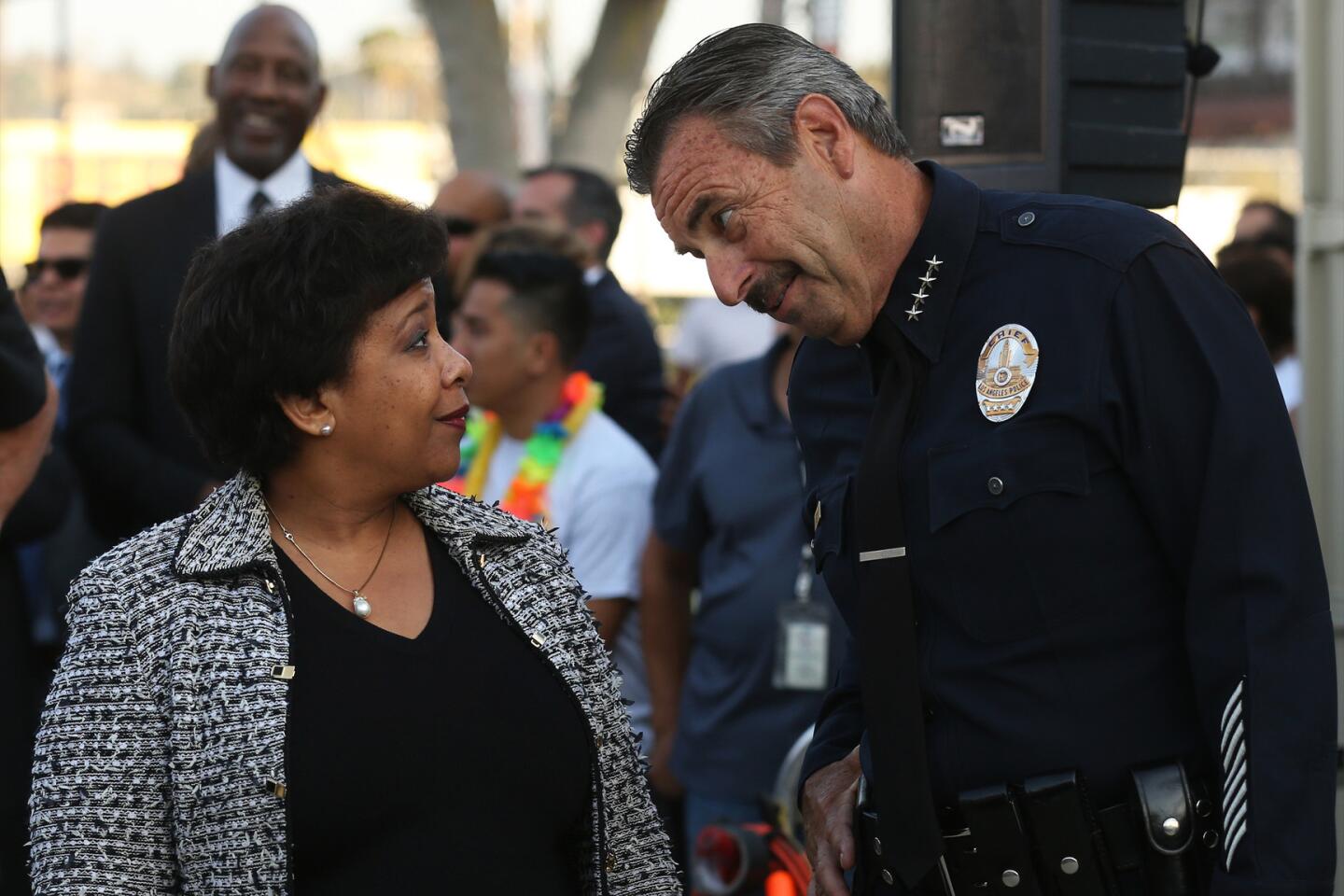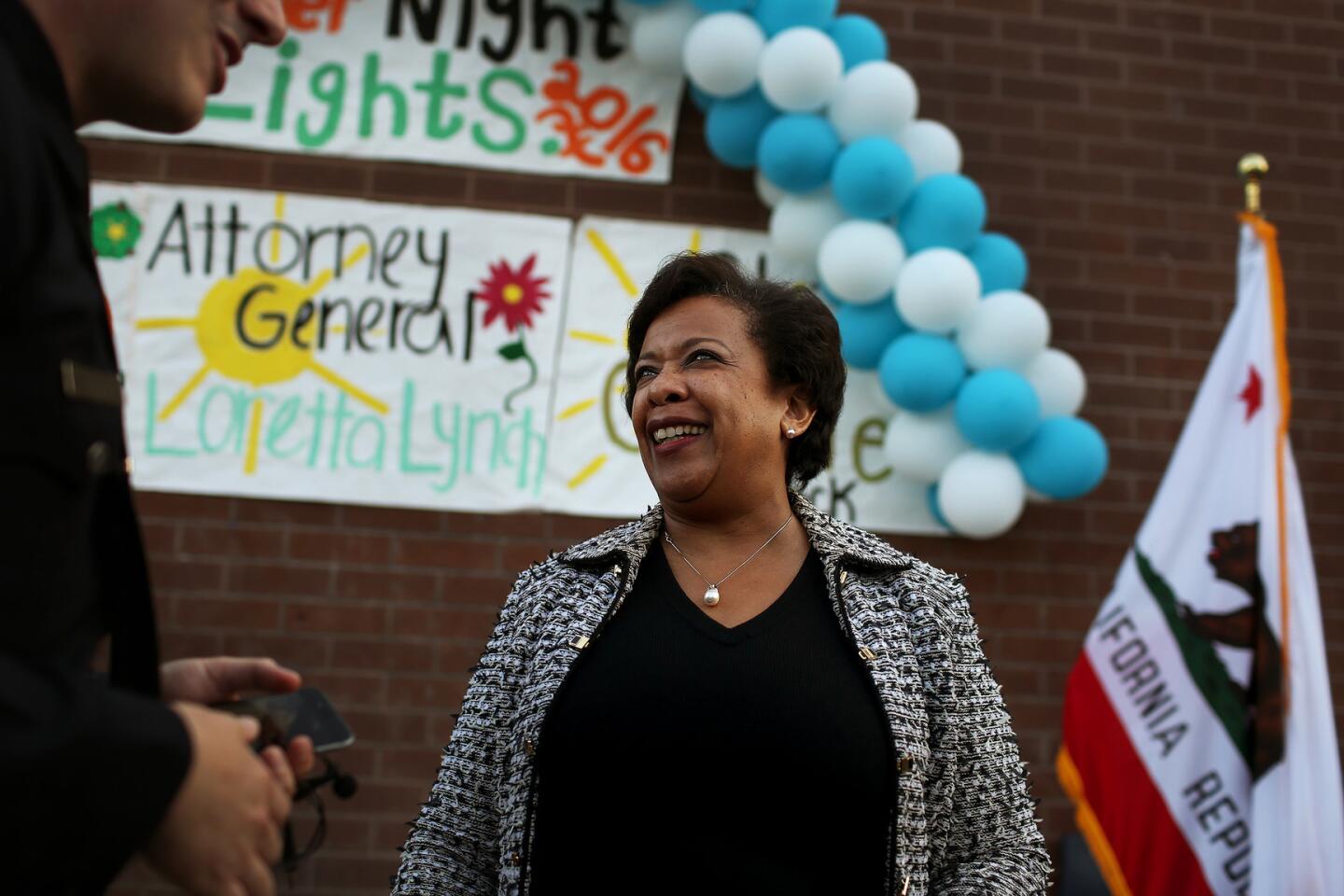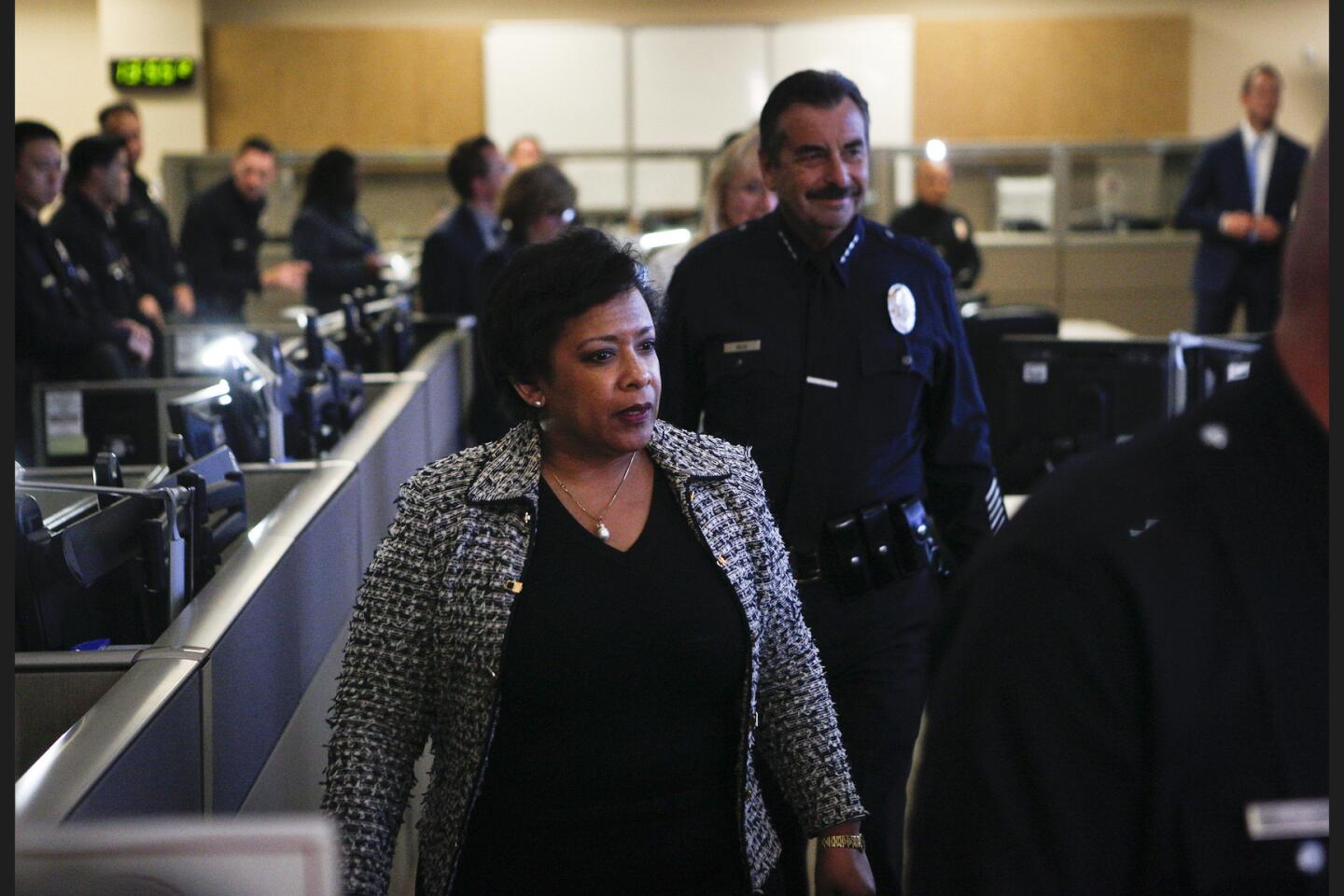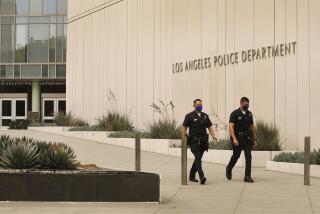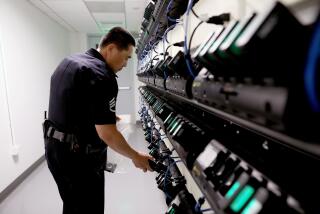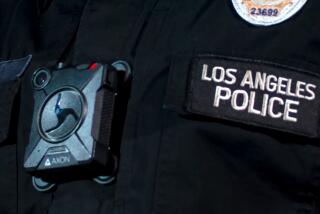U.S. Atty. Gen. Loretta Lynch talks technology, transparency during LAPD visit
U.S. Atty. Gen. Loretta Lynch ended her latest nationwide tour with a stop at the Los Angeles Police Department on Wednesday, looking at how police use technology to prevent crimes and interact with residents.
Protesters stood outside the city’s emergency operations center where Lynch spent part of Wednesday afternoon, urging her to take a critical look at the department she was visiting and criticizing recent deadly shootings by police. Inside, Lynch met with LAPD brass to discuss how the department uses body cameras, social media and other tech-driven initiatives.
Lynch noted the role that social media and other technologies have played in “illuminating the challenges and the tensions” between law enforcement and communities across the country. Agencies, she said, must find a way to use technology to not only protect residents but also allow for “meaningful interaction and input” into policing.
“One of the issues that we really are struggling with is transparency,” she said. “How do we use all the technology we have to be as transparent as possible?”
Lynch’s trip to Los Angeles caps a six-city U.S. tour designed to give the nation’s top law enforcement official a firsthand glimpse at local agencies during a time of intense national scrutiny of policing. The cities were selected, her office said, because they are “effectively implementing” recommendations outlined in an often-cited report created by a presidential task force focused on improving police-community relations.
Los Angeles was selected, according to a news release from Lynch’s office, to “highlight law enforcement’s efforts to use social media and technology to increase transparency, curb violent crime and build stronger bonds with the communities they serve.”
Lynch spent Wednesday afternoon in a series of meetings with LAPD brass, focused on how the department is using technology, including its recently approved body camera initiative.
Civil liberties groups and others have opposed the program, saying the LAPD’s policy for the cameras undermines the transparency and accountability that advocates say the technology will bring to policing. The LAPD has said it will not release footage from the cameras unless required by a court order.
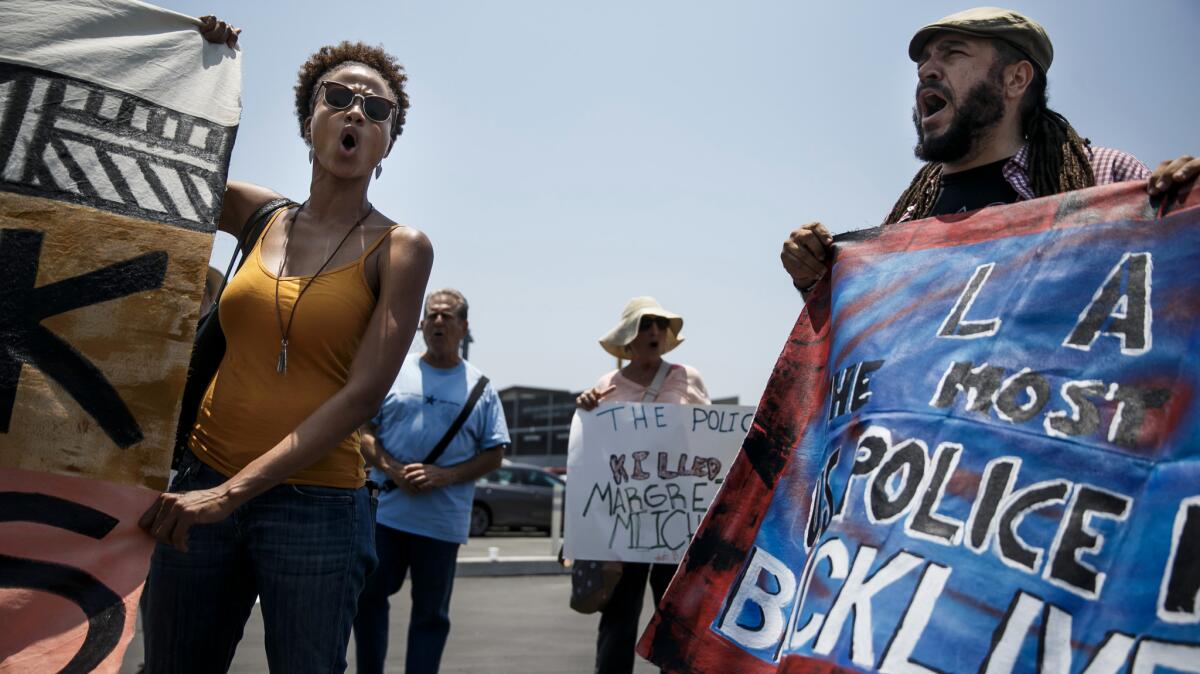
LAPD Chief Charlie Beck has defended that decision, citing concerns over victim privacy and the fact that the recordings could be used as evidence in criminal or civil cases.
When asked about the LAPD’s policy, Lynch said her view was to be “as transparent as possible” but acknowledged there may be valid reasons for an agency to not release the video. If that’s the case, she said, she suggested police explain why.
”I don’t have a magic bullet that’s going to resolve that for you, and I’m sorry about that,” she said. “Every case is different. I think every community is going to have to resolve that for themselves.”
The LAPD has drawn criticism in recent months from a group of activists affiliated with the Black Lives Matter movement. Those activists circulated an online petition this week urging Lynch to reconsider her visit, citing deadly shootings by LAPD officers and a still-criticized 2014 episode in which officers tampered with in-car recording equipment.
As of Wednesday afternoon, it had 2,500 signatures.
Michael Williams, a member of the Black Lives Matter movement and critic of the LAPD, was one of about a dozen people who gathered outside the LAPD operations center before Lynch arrived.
“The whole point is not necessarily to get her to act, to do anything,” Williams said. “The point is to let people know that the LAPD is not an example or model.… We don’t want this propaganda.”
Lynch said protesters have raised issues “that are of concern to all of us” and provided a “very important voice” during the ongoing conversation about policing.
The attorney general also stopped by a Boyle Heights police station for a roll-call meeting with officers and was slated to attend the opening night of the city’s Summer Night Lights program. Her trip ends Thursday, after a town hall meeting at Facebook’s Playa Vista campus focused on ways to build “mutual respect and coordination” among police and residents.
For more police and LAPD news, follow me on Twitter: @katemather.
More to Read
Start your day right
Sign up for Essential California for news, features and recommendations from the L.A. Times and beyond in your inbox six days a week.
You may occasionally receive promotional content from the Los Angeles Times.
